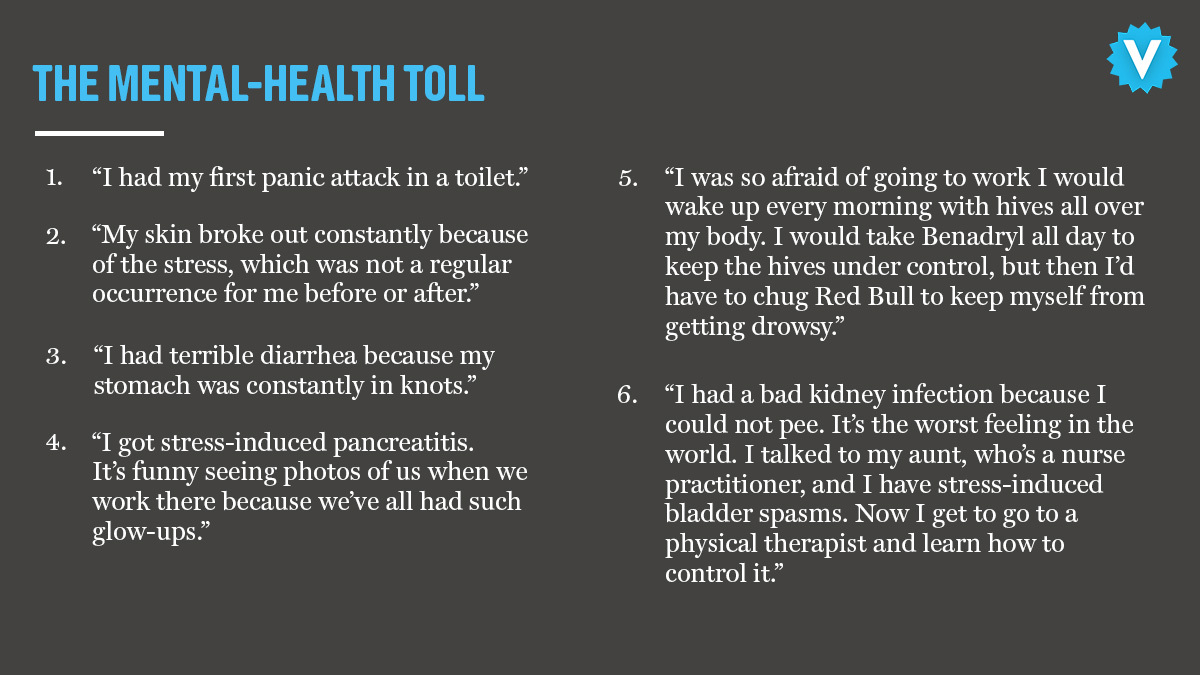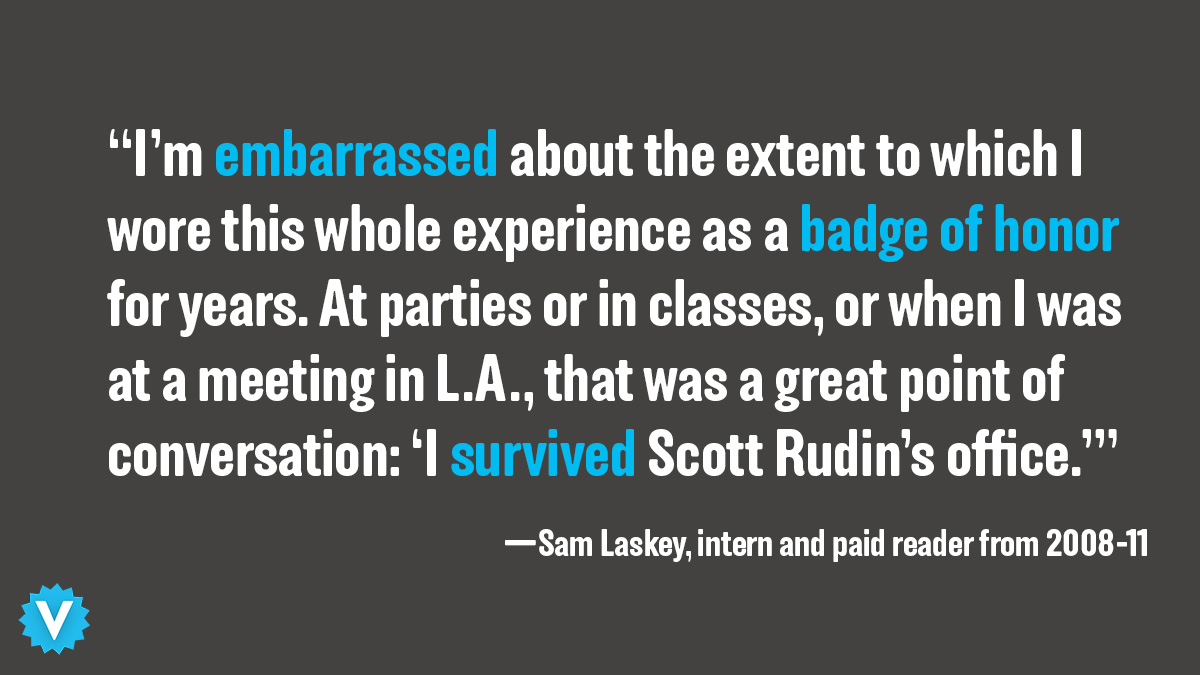
We spoke with 33 former assistants and interns of Scott Rudin Productions who worked for him from 1994 to 2020. Here, a portrait of a toxic workplace — one predicated on bullying and physical intimidation vult.re/3dFKYfZ
The portrait of Rudin that emerges from their stories is remarkably consistent: constant verbal berating, sleep deprivation, and an ambient, paralytic fear dedicated to fulfilling the most mundane tasks, like ordering food or binding scripts vult.re/3dFKYfZ
As assistants described it, much of the job was taken up by an Olympic level of busywork geared toward not setting Rudin off — whether that meant getting his food order exactly right or making sure a document was handed to him in the right font vult.re/3dFKYfZ 

Many said they felt intimidated, manipulated, and threatened in their interactions with Rudin, which created a tense environment where they were constantly on edge in anticipation of the next explosion vult.re/3dFKYfZ
According to eight assistants and interns who worked there from 2008 through 2020: vult.re/3dFKYfZ 

“When he walks in, it’s like a fear you feel through your arms,” one assistant said. “The fear and impending doom is pulsing through your veins.” Rudin’s physicality was a key factor in this fear vult.re/3dFKYfZ
Certain rumors of Rudin’s behavior were frequently shared among the assistants, particularly the newbies, as to become office lore. Really, it was to prepare them mentally for what might happen vult.re/3dFKYfZ 

Former assistants described the symptoms they experienced working for Scott Rudin disturbingly. Some of them manifested in physical ways while they worked there. Others came out through years of therapy, or were triggered unexpectedly vult.re/3dFKYfZ
This resulted in a dramatic change in self-worth in future jobs and relationships. And much of the suffering was compounded by how isolating it felt to work for Rudin. Here, 6 ways assistants and interns, working from 2008 to 2020, described the personal damage: 

Assistants had various theories as to why Rudin’s behavior had been accepted for so long: the normalization of abuse within the industry; the power he wields in both Hollywood and the media, where he’s a major and regular advertiser; the fact that many are bound by NDAs
But many noted that working for Rudin was viewed as impressive precisely because of his reputation as a terrible boss. A job at SRP was often described as a rite of passage, even as it had the effect of driving many people out of the industry vult.re/3dFKYfZ 

Jason Carter Eaton: "The more I talk about Scott and remember everything, the more I want you to put my middle name in the piece. I want it in the biggest goddamn font you can find. I want him to know who’s saying this [...] I’m saying this for all my friends who can’t"
Here, Scott Rudin, as told by his assistants vult.re/3dFKYfZ
• • •
Missing some Tweet in this thread? You can try to
force a refresh








